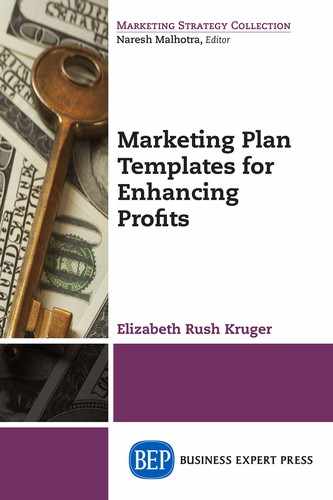Suppliers: Delegate Weaknesses
Overview
Tony Robbins, a peak performance coach, inspired Frank Kern to use suppliers to compensate for his weaknesses. Even though he knew little about parrots or writing a book, Frank offered an e-book entitled Teach Your Parrot to Talk that soon was generating an income stream of $3,000 per month.
Likewise, Aesop advocates trading strengths with others by stating, “The strongest man needs a weaker man’s help.” Even a large business cannot excel at everything so it must use outside suppliers.
According to the 80/20 rule, if a business outsources the bottom 80 percent of its skills, its suppliers will produce 16 times better results. Let us see why all businesses benefit from trading strengths for weaknesses.

Surfer dude1
Vignettes
Be Lazy Like a Surfer Dude
Tony Robbins, a peak performance coach, interviewed Frank Kern, a surfer dude from California, about his path to prosperity.2 Frank was a failure at everything he tried. Destitute and discouraged, he and his young family lived in the back of a friend’s trailer.
Frank borrowed a recording by Tony Robbins, imbibed its message, and implemented his coaching. In the recording, Tony refers to a successful book about teaching a parrot to talk. Curious about its success, Frank found many Internet searches on the topic.
Frank realized that downloading an e-book is cheaper and easier than buying a book. Even though he knew little about parrots or writing a book, Frank decided to offer an e-book entitled Teach Your Parrot to Talk.
Unstoppable, Frank delegated his weaknesses and borrowed enough to pay a parrot expert to write the book for him. He tried various ads in Google AdWords to see which ones drove the most business. Soon his campaign was generating an income stream of around $3,000 per month.3
Frank did not know about parrots, but he knew about dogs. He realized that more people own dogs than parrots. Recognizing an opportunity, Frank created a course that taught dog owners how to use positive reinforcement with their dogs.
As before, Frank advertised the website through Google AdWords and refined his campaign to generate more income. Then he replicated the course with websites for 600 breeds of dogs. When he pushed the button to launch the websites, his courses generated $23.8 million within 24 hours.
Thrilled by his success, the multimillionaire designed a program to teach others how to prosper from Internet marketing. Frank promised that buyers could make more than $115,000 a year by using his program, but some buyers sued him. They believed they could make money without using his program.4
Likewise, a business must use my book to profit from it. I guarantee that if a business uses this book to transform and implement their marketing plan, the business will spark its profits.
Can a Mouse Save a Lion?
An Aesop Fable
A mouse scampers over a lion’s face. Awaking with a start, the lion seizes the mouse for a tasty meal. The mouse begs, “Please let me go and one day I’ll repay your kindness.” The lion chuckles and reluctantly lets him go.
Soon afterwards, hunters capture the lion with a net. Responding to his desperate howls, the mouse runs over, gnaws through the net, and sets the lion free. The mouse says, “You laughed at me, but even a lowly creature like a mouse can save the king of the animals.”
Aesop advocates trading strengths with others since even “the strongest man needs a weaker man’s help.”
Does the Strongest Business Needs Help?
Is the Business Too Poor to Use Suppliers? Actually, the reverse is true. A business is poor because it needs to use more suppliers. Even a large business cannot excel at everything, so it must use outside sources such as suppliers, strategic partners, associates, or joint ventures to compensate for its weaknesses.
- Promote the business through advertising agencies, consultants, publicists, printers, and video producers.
- Facilitate sales through distributors, sales representatives, shippers, warehouses, wholesalers, and retailers.
- Use other specialists such as recruiters, insurance agents, lawyers, trainers, contractors, landscapers, and maintenance people (Figure 4.1).

Figure 4.1 Types of suppliers
Let’s see why this is true. Suppliers provide the expertise a business lacks, thereby compensating for its weaknesses. A wise business delegates its weaknesses to suppliers, so it can specialize in its strengths. This means the more a business delegates its weaknesses, the more it can specialize in its strengths.
How Much Do Suppliers Benefit a Business?
How Do Strengths and Weaknesses Compare?
Let us see how much the business gains by using suppliers to compensate for its weaknesses. The 80/20 rule predicts the top 20 percent of its skills will produce a 4-fold result, whereas the bottom 80 percent of its skills will produce a 0.25-fold result. Comparing the top and bottom skills, we discover that strengths produce 16 times more results than weaknesses (Table 4.1).5
Table 4.1 Comparison of skills
|
Top skills |
Profits |
Return |
Bottom skills |
Profits |
Return |
Ratio (4/0.25) |
|
20% |
80% |
4-fold |
80% |
20% |
0.25-fold |
16 |
Both parties to the transaction become at least 16 times more productive. If a supplier specializes in the top 20 percent of its skills, the supplier is 16 times better at the skill than the business.

Real Money with David Holland6
For example, one of my weaknesses is filing taxes, whereas one of my strengths is coaching businesses. Holland Financial filed my taxes and I coached businesses on the company’s radio show, Real Money with David Holland. Both of us greatly benefited from trading on our strengths. Specialize where the business is best and delegate the rest.

Frederic Bastiat7
By virtue of exchange, one man’s prosperity is beneficial to all others.
[Claude] Frederic Bastiat, advocate for free trade and French libertarian, 1801–1850
Should We Trade With Others?
What Is the Theory of Comparative Advantage?
Many believe their country should be self-sufficient and should block imports from other countries. Others believe trade increases prosperity, whether the trade is between people, businesses, or countries. Let’s discover which belief is correct.
The theory of comparative advantage guides businesses to specialize in items that it can produce more efficiently than others and to trade with suppliers for the other items. A business benefits by selling items where it has a comparative advantage and by purchasing items where it has a comparative disadvantage. Let’s work out a simple example of the theory of comparative advantage.8
Without Trade
Let us assume that there are only two products and two workers. A Thai worker can produce two iron rods or one cord of wood per hour, while a Korean worker can produce two iron rods or four cords of wood per hour (Table 4.2).
Table 4.2 The theory of comparative advantage
|
Without trade |
Specializing |
With trade |
||||||
|
Thai |
Korean |
Total |
Thai |
Korean |
Thai |
Korean |
Total |
|
|
Iron |
2 |
2 |
4 |
4 |
- |
2 |
2 |
4 |
|
Wood |
1 |
4 |
5 |
- |
8 |
4 |
4 |
8 |
|
Hours |
2 |
2 |
4 |
2 |
2 |
2 |
2 |
4 |
Specializing
The Thai worker has a comparative advantage in producing iron rods, so he only produces them and trades iron rods for cords of wood. In contrast, the Korean worker has a comparative advantage in producing cords of wood, so he only produces them and trades cords of wood for iron rods. By specializing, the Thai worker can produce four iron rods, while the Korean worker can produce eight cords of wood in two hours.

The port of Rotterdam9
With Trade
If the Thai worker trades two iron rods with the Korean worker for four cords of wood, the Thai worker ends up with two iron rods and four cords of wood, whereas the Korean worker ends up with two iron rod and four cords of wood.
Where did the extra three cords of wood come from? Trading increases prosperity. As Aesop says, “The strongest man needs a weaker man’s help.”
Does Trade Increase Prosperity?
(Shows a merchant boat in the port of Rotterdam in the Netherlands.) The theory of comparative advantage predicts that trade has a positive impact on prosperity. I tested whether this theory is true by relating imports, exports, and prosperity. The data was from the 87 countries that had complete data for the years 1992 to 1995 and 2003 to 2005. Residents in these countries comprised 98 percent of the world’s population.
My research assumed a country exports its strengths (comparative advantages), imports its weaknesses (comparative disadvantages), and prosperity is the gross domestic product (GDP) less foreign trade.
Simple regression analysis related exports with prosperity and imports with prosperity. These relationships were highly significant, accurate, and positive. When GDP was at least $10,000 per capita, exports predicted 8 percent of prosperity and imports predicted the 11 percent of prosperity. Cross-lagged panel correlation confirmed that these relationships were simultaneous, synergistic, and substantial.10

Coconut palms in Costa Rica11
These results substantiated the theory of comparative advantage and verified that international trade has a positive impact on prosperity. Clearly, countries prosper from low-cost imports and revenue-generating exports. Likewise, any business can prosper by trading its strengths and delegating its weaknesses.
Why Did Costa Rica Prosper?
Decades ago, Costa Rica was a patchwork of banana plantations. As the country’s climate and soil were ideal for growing bananas, plantation owners basked in prosperity like regal lions.
In 1972, a nearby country, Honduras, found black sigatoka fungus on some banana leaves. Without warning, the fungus soon devastated Costa Rica’s banana crops and crushed its economy.12
The World Bank loaned money to Costa Rica to solve its economic crisis. Costa Rica hired consultants who identified three potential strengths: growing African coconut palms, assembling computer chips, and attracting tourists. The country loaned money to plantation owners, factory managers, and developers. Meanwhile experts taught them how to grow African coconut palms, produce computer chips, and attract tourists.
On a recent flight to Costa Rica, I saw orderly plantations of palm trees, industrial parks, and coastal resorts. The plantations grow African coconut palms, while businesses produce and export coconut oil and computer chips. The government’s website, Anywhere Costa Rica, attracts tourists to its resorts, parks, beaches, and zip line canopy tours. Costa Rica has become the most prosperous country in Central America by specializing in its strengths.13 Likewise, any business can prosper by specializing in its strengths.
Key #4: Delegate Weaknesses
The essence of strategy is choosing what not to do.
Michael [Eugene] Porter, Bishop William Lawrence University professor at the Institute for Strategy and Competitiveness, Harvard Business School
Should a Business Be Like a Lazy Lion?
Yes, be lazy and contract with suppliers to compensate for its weaknesses. The business will prosper by trading strengths for weaknesses. Others love to do what the business hates doing. The business can only specialize in its strengths if it delegates its weaknesses. The path to prosperity is not self-sufficiency but interdependency. Decide to delegate the weaknesses of the business to suppliers.
Summary
If a business outsources the bottom 80 percent of its skills, its suppliers will produce 16 times better results. This means that the more a business delegates its weaknesses, the more it can specialize in its strengths.
The theory of comparative advantage guides businesses to specialize in items that it can produce more efficiently than others and to trade with suppliers for the other items. My research found that countries prosper from low-cost imports and revenue-generating exports.
Likewise, any business can prosper by trading its strengths and delegating its weaknesses. The fourth key to enhancing profits is to delegate weaknesses.
 Delegate the Weaknesses of the Business to Suppliers
Delegate the Weaknesses of the Business to Suppliers
What are weaknesses of the business?
□ Accounting |
□ Innovation |
□ Research |
□ Collections |
□ Insurance |
□ Retailing |
□ Client service |
□ Legal issues |
□ Returns |
□ Client training |
□ Management |
□ Shipping |
□ Direct sales |
□ Personnel |
□ Sourcing |
□ Engineering |
□ Planning |
□ Staff training |
□ Finance |
□ Production |
□ Storage |
□ Fulfillment |
□ Promotion |
□ Technology |
□ Global issues |
□ Repairs |
□ Wholesaling |
Decide how the business will delegate weaknesses:
What specific functions, tasks, and projects will the business delegate to relevant suppliers?
